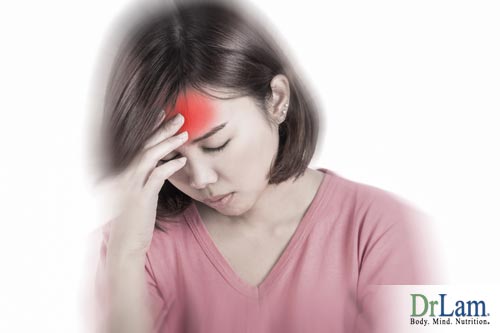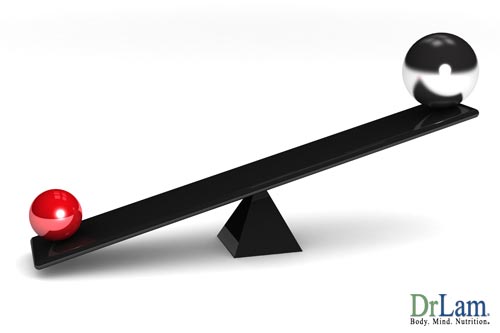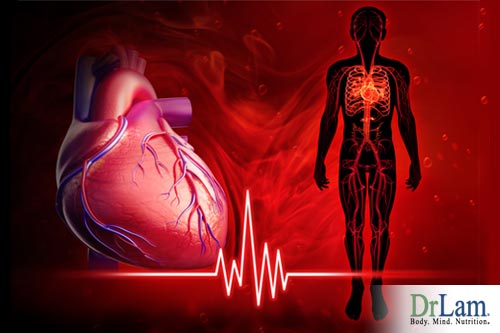
 Do any of the following sound familiar? If so, you may have estrogen imbalance.
Do any of the following sound familiar? If so, you may have estrogen imbalance.
The chances are good that when visiting your medical practitioner, you might be told it is your hormones increasing and that you have an estrogen imbalance. You might be prescribed an oral contraceptive or even hormone replacement therapy (HRT). Yes – drugs to correct the symptoms – and all directed at your ovaries.
However, the root of your symptoms (as well as your estrogen imbalance) might actually sit in another part of your body. The symptoms you have may be the end product of a dysfunction that conventional medicine does not see as an illness. You may, in fact, have adrenal fatigue.
The adrenal glands form part of the hypothalamic-pituitary-adrenal (HPA) axis. The HPA axis is part of the body’s neurometabolic response system. When you are under any kind of stress, whether psychological or physiological, in nature, your body automatically takes measures to protect itself. This is done by secreting hormones, the most important of which is cortisol, as it serves as the body’s coping mechanism during stress.
As stress increases or is prolonged, the body needs – or tries to – produce more cortisol until the adrenal glands are no longer able to keep up with the demand. Your body’s automatic response system kicks in, and other means of producing the much-needed hormones are activated. This encompasses different glands and organs.
There are four stages of adrenal fatigue – beginning with the first phase(s), where associated symptoms are usually of short duration (under normal circumstances) and ending with the fourth phase. If unchecked, these phases end with the whole system crashing and the the person becoming bedridden. Once this fourth stage is reached, however, recovery is a long, slow process.
There are a myriad of symptoms associated with the condition. Each person is different. You need not have all the symptoms:
It should be noted that the symptoms mentioned may not solely be the result of adrenal failure, but could possibly be associated with another physiological condition. It is always best to get the advice of a medical practitioner to rule out other possibilities.
 As mentioned, cortisol is the most important hormone when your body is under stress of any kind. It is your body’s coping hormone.
As mentioned, cortisol is the most important hormone when your body is under stress of any kind. It is your body’s coping hormone.
The precursor of cortisol, however, is progesterone. Progesterone is a hormone that is able to change its structure. It can become a different hormone. This unique ability means that it is utilized by the body, especially in times of stress, and converted into cortisol. This is fine when the stressful encounter is of short duration. Under normal conditions, the body would function as it should once the stressful situation is over – everything goes back to normal.
A problem arises when the stressful situation persists, and the progesterone is over utilized to the point of depletion. At this point, the progesterone-estrogen balance is askew, and estrogen dominance comes into play.
Once your estrogen levels are too high, the thyroid is not able to function properly even though the thyroid hormones T3 and T4 values are normal.
Estrogen affects all aspects of the female physiology. It is responsible for the development of female characteristics during puberty, such as growth, pubic hair, and breasts. It also affects the ovaries, fallopian tubes, breasts, vagina, and cervix. It stimulates the eggs in the ovaries to mature, allows the cervix to soften so that sperm can swim, and provides lubrication when engaged in intercourse. It is also considered a ‘feel good’ hormone.
Typically, estrogen is a good hormone. Too much estrogen, however, has negative consequences. These include PMS, uterine fibroids, endometriosis, ovarian cysts, weight gain especially around the hips, problems with weight loss, and possible breast or uterine cancer.
Estrogen dominance is closely related to Adrenal Fatigue Syndrome (AFS); estrogen dominance is common in stage 3 of adrenal fatigue. Besides lower than normal progesterone levels, other dysfunctions can trigger this occurrence.
Looking at things on a hormonal level, when the body is exposed to a threat, the NeuroEndoMetabolic (NEM) stress response automatically springs into action. The following process follows:

Although HRT has proven to alleviate many symptoms associated with an estrogen-progesterone imbalance, research has led many people to realize that HRT, besides the obvious benefits, has risk factors involved.
Introducing natural progesterone is a great way of alleviating the problem, although the dosage depends on your particular condition. Baseline saliva testing helps your medical professional determine dosage.
The western lifestyle sees people overeating while not doing much exercise. Additionally, a large portion of their dietary calories are derived from fat. Women in these countries also show a significant incidence of problems associated with menopause. Studies have shown that estrogen levels fell when these women were on a low-fat, high-fiber, plant-based diet, even without adjusting their calorie intake.
In cultures that have better eating habits and where people get more exercise, women suffer lower incidences of menopausal symptoms. In addition, their estrogen levels do not drop as significantly as their western counterparts during the whole menopausal transition.
Women whose intake of coffee exceeds two cups per day have increased estrogen levels. Studies conducted on a group of women from the same general demographic have proved that those who drank the equivalent of five cups per down had approximately seventy percent more estrogen in their bodies than those who drank only two or less.
The liver is the body’s major detoxifier. It eliminates all built up waste from the body. To keep the liver healthy and working, you need to keep hydrated. There are also certain foods that help and which can be added to your diet. These include garlic, grapefruit, carrots, beets, green leafy vegetables, lemons, and green tea.
About sixty-one percent of Americans are overweight. Fat cells, unfortunately, contribute towards estrogen production. An added incentive to lose those fat cells would be that cancer is also more common in those who are overweight.
 The proper exercise has shown to play a role in correcting hormonal imbalances. Besides this, those who exercise tend to be less depressed and their life expectancy is increased.
The proper exercise has shown to play a role in correcting hormonal imbalances. Besides this, those who exercise tend to be less depressed and their life expectancy is increased.
There are a number of vitamin supplements available that enhance the functionality of adrenal glands while also alleviating some of the symptoms associated with an estrogen imbalance. Those with advanced stages of adrenal fatigue should first consult an alternative medicine practitioner before using these as impulsive or unwise consideration for use could possibly cause more harm than good.
In most cases, adrenal gland dysfunction and an estrogen imbalance are linked. Where this is the case, one problem cannot be fixed without simultaneously addressing the other.
Where conventional western medicine focuses on treating the various symptoms associated with an estrogen imbalance, a holistic viewpoint sees the entire picture and instead addresses the root cause.
